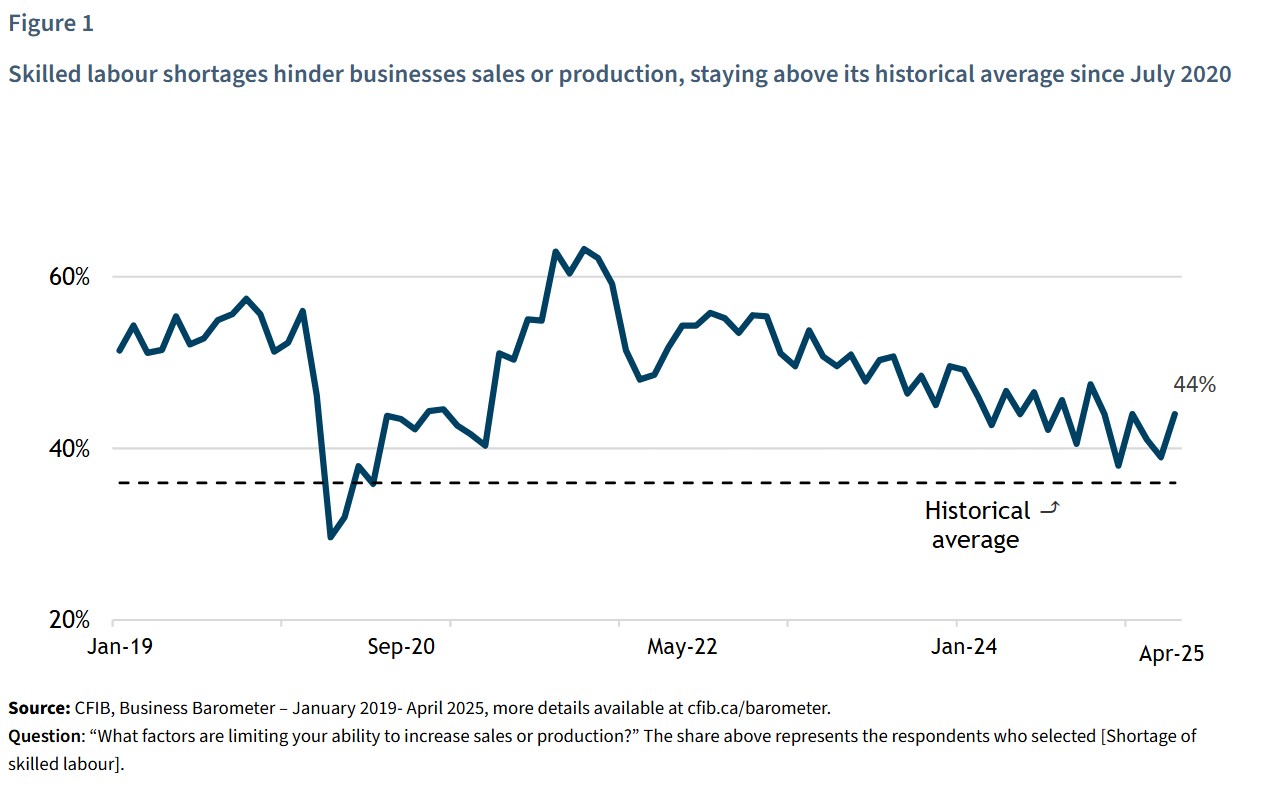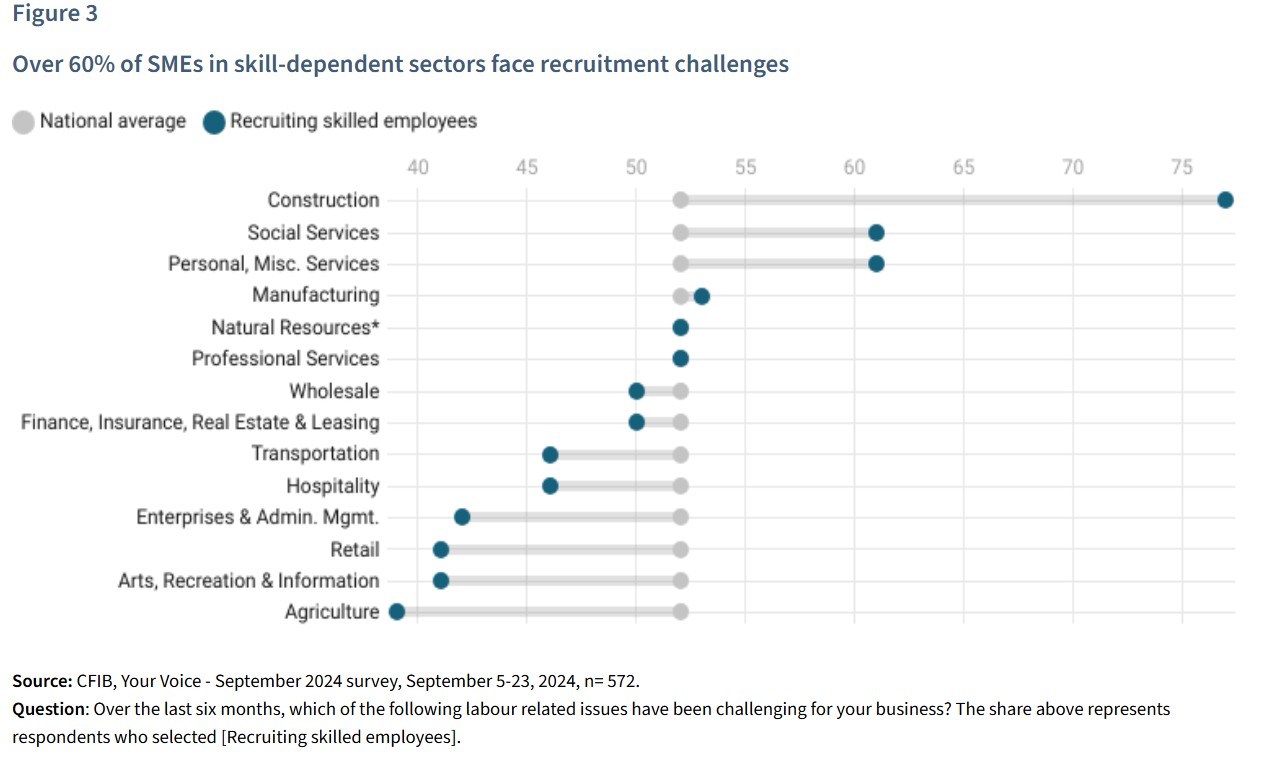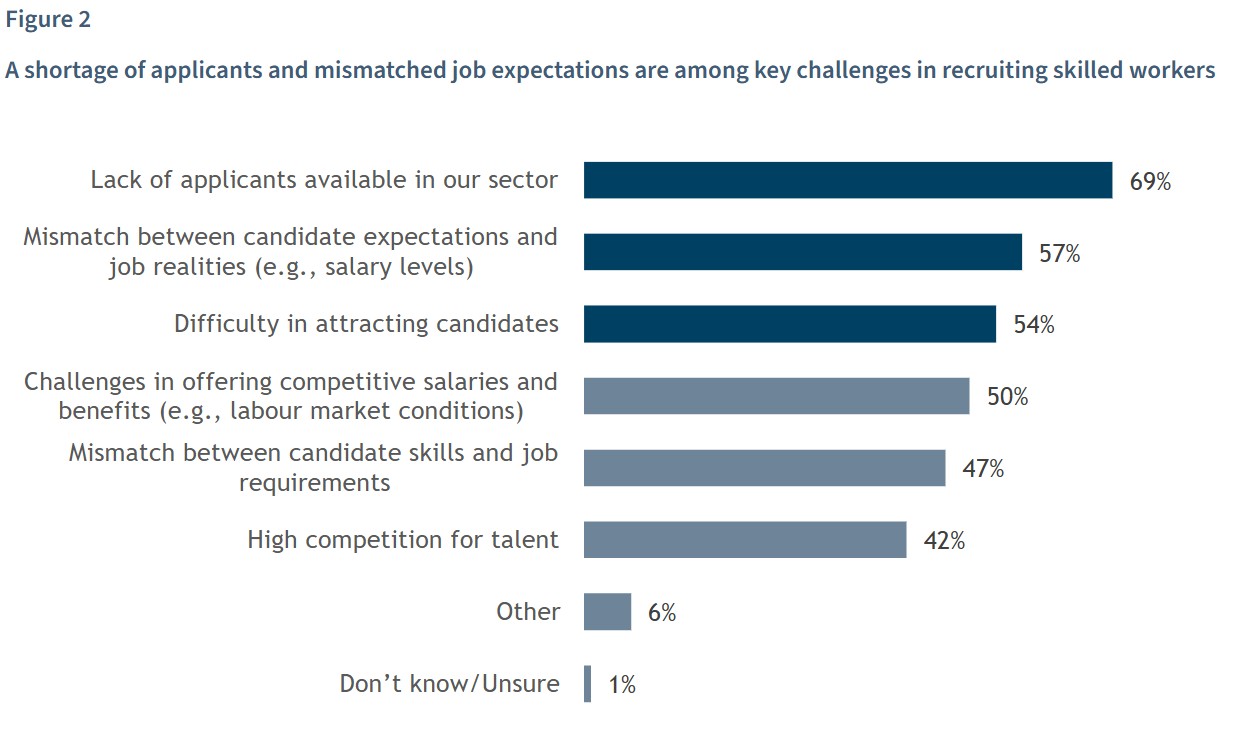
Skills mismatch hampering SMBs’ growth, says report

The Canadian Federation of Independent Business (CFIB) is calling on governments to address the labour quality and mobility issues that small businesses are currently experiencing.
These challenges include a shortage of applicants, skills mismatches, and difficulty attracting candidates when hiring skilled workers. Labour mobility barriers are compounding these issues, according to the group.
"Over four in ten small firms say a shortage of skilled labour is limiting their ability to increase sales or production. Many are struggling not just to find workers, but to find candidates with the right skills, expectations, and qualifications," said Marvin Cruz, CFIB's director of research.

Among sectors, construction is struggling the most with recruitment, followed by social services and personal services.

Employers across the world are increasing their experience requirements for entry-level jobs as they lament the lack of experience of their recent hires, according to a previous Deloitte report. Meanwhile, Canada’s unemployment rate rose to 7.0% in May—the highest level since September 2016, excluding the pandemic years—according to the Labour Force Survey released by Statistics Canada (StatCan).
CFIB’s latest analysis, 53% of SMEs say labour shortages are a major barrier to growth, while 44% report that a shortage of skilled workers is directly limiting their ability to expand sales or production.
"At the core of this challenge is a persistent mismatch between business needs and the available workforce," say Cruz and CFIB’s research analyst Alchad Alegbeh.
A full 69% of SMEs identify a shortage of qualified candidates within their sectors as the primary obstacle to recruiting skilled employees. But the problem runs deeper: nearly 57% of small businesses report a disconnect between what candidates expect in terms of pay or benefits and what the business is offering, according to the report.

Alegbeh and Cruz added that "the greater challenge is now finding qualified candidates whose expectations and skill set align with the demands of the role."
"The issue of labour shortages has evolved — while many sectors still face a lack of applicants, the greater challenge is now finding qualified candidates whose expectations and skill set align with the demands of the role and the constraints faced by small businesses," they said. "These combined barriers — shortages, skills mismatches, compensation limits, and attraction difficulties — don’t just disrupt hiring; they directly limit business growth and constrain productivity."
Now, CFIB is calling on governments to enhance labour quality by doing the following:
As for labour mobility, CFIB recommends governments:
Recently, the federal government introduced legislation to eliminate barriers to labour mobility and internal trade. The legislation—titled One Canadian Economy: An Act to enact the Free Trade and Labour Mobility in Canada Act and the Building Canada Act—will provide a framework to recognise provincial and territorial licences and certifications for workers. According to the government, this means that a worker authorised in a provincial or territorial jurisdiction can more quickly and easily work in the same occupation under federal jurisdiction.